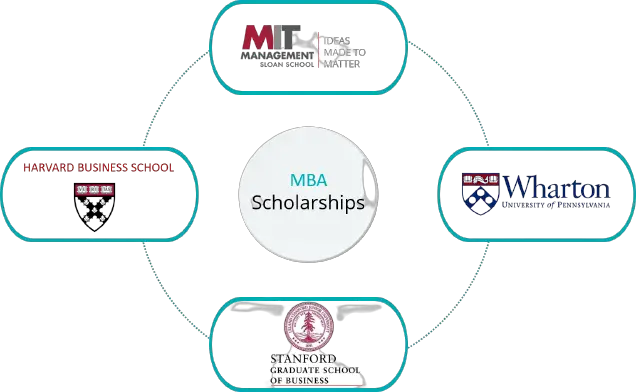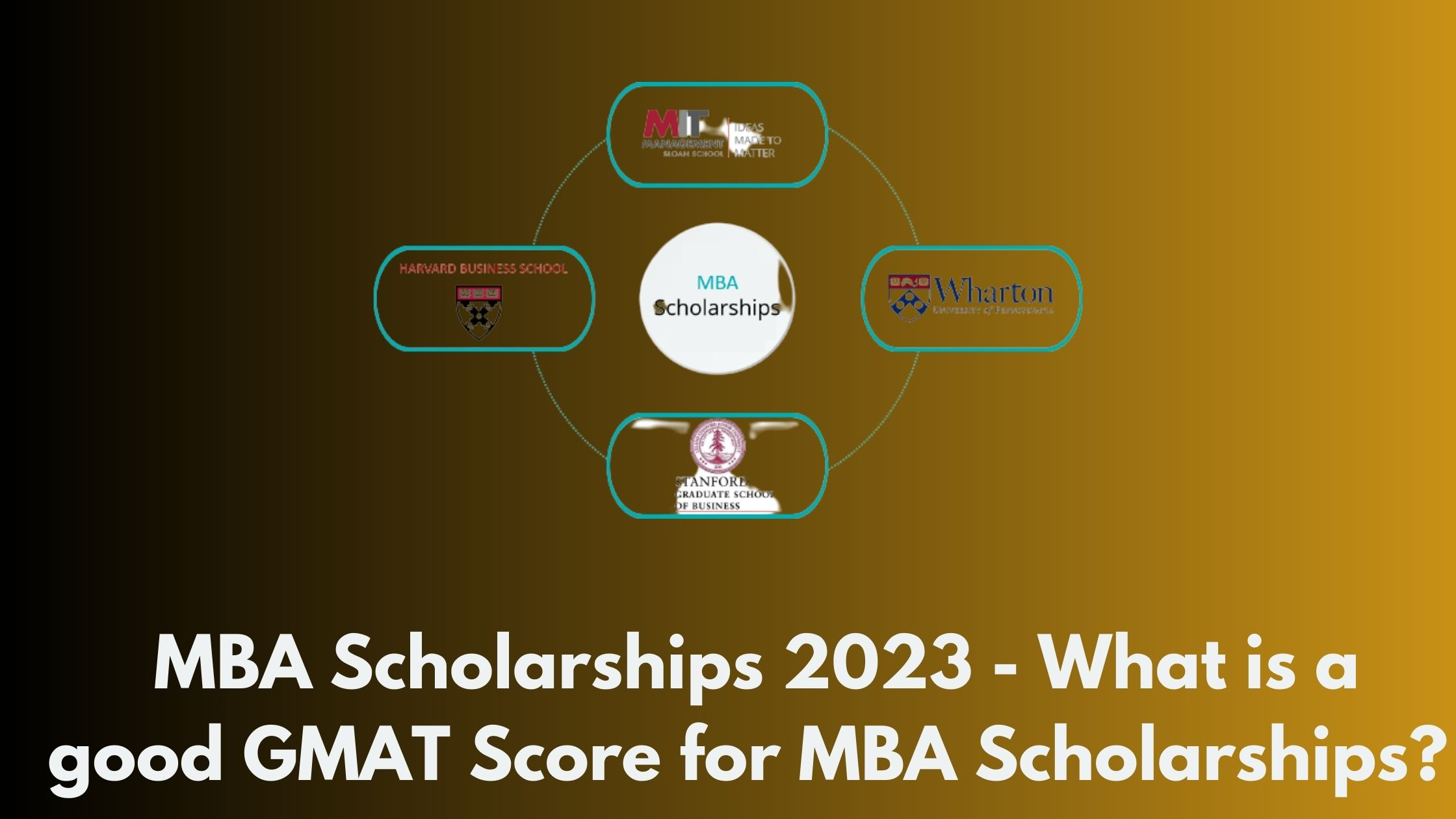MBA scholarships offer valuable financial support to international students seeking business education abroad. For a good GMAT score to secure these scholarships, genuine preparation is crucial. Admissions committees carefully evaluate GMAT scores in the scholarship selection process, considering eligibility criteria and the applicant’s overall MBA application.
GMAT preparation courses and study materials play a vital role in achieving a competitive GMAT score for business school scholarships. With diligent effort and dedication, students can embark on a successful MBA journey with scholarship funding.
Is it possible to receive scholarships based on achieving a high GMAT score?
Yes, it is possible to receive MBA scholarships based on achieving a high GMAT score. While there is no specific minimum score that guarantees funding, business schools and external scholarship programs often offer partial or full funding to high-achieving students, with a high GMAT score being a significant factor in defining “high-achieving.”
However, a high GMAT score alone is not enough to secure a scholarship, as other factors such as GPA, writing samples, and letters of recommendation are also taken into account. Different types of MBA scholarships are available, and the role of the GMAT score in determining the likelihood of receiving them varies.

What Types of Scholarships for GMAT Are Available?
There are two primary types of scholarships available for MBA programs, which include scholarships provided by the business schools themselves for prospective students and scholarships granted by external funding sources. Let us delve into both categories and determine whether high GMAT scores are a requirement for any of these scholarships.
School-Based GMAT Scholarships
Business schools provide two types of MBA scholarships: need-based and merit-based. Need-based scholarships are determined based on factors such as family income and socioeconomic status, without taking the GMAT score into account.
On the other hand, merit-based scholarships are fiercely competitive and exhibit significant diversity in eligibility criteria and funding levels. These scholarships take into account a student’s academic and personal accomplishments, with the GMAT score being a critical factor for consideration.
Although no business school specifies a minimum GMAT score for scholarships, they provide a combination of general scholarships for academic excellence and targeted scholarships for specific demographic groups or students with special interests. Scholarship committees that are responsible for allocating funding evaluate each student’s work history, academic achievements, career goals, community service, and demographics to determine eligibility for funding.
To learn more about scholarship opportunities, students can visit the financial aid websites of their prospective schools or contact the MBA administration directly. Some scholarships are awarded automatically when applying to an MBA program, while others require additional application materials such as writing samples or letters of recommendation.
For instance, Northwestern’s Kellogg School of Management provides a wide range of scholarships for incoming students, including targeted scholarships like the Diversity Scholarship for underrepresented students, the McGraw Foundation Excellence Grant for students interested in environmental protection, and the general Kellogg Scholarship for exceptional academic and leadership skills.
Although none of these scholarships specifically require high GMAT scores, all applications require GMAT scores as an essential part of the admission process. Furthermore, all scholarships require students to demonstrate academic excellence, which the GMAT score reflects.
Next, let’s explore external funding organizations’ scholarships for high GMAT scores.
Organization-Based GMAT Scholarships
In this article, the author discusses whether a high GMAT score can secure an MBA scholarship. While most MBA programs do not list a specific minimum GMAT score for scholarships, a high GMAT score is usually a key component of how “high-achieving” is defined. The article goes on to explain the two types of scholarships available: school-based scholarships and organization-based scholarships. For both types, a scholarship committee will consider a student’s academic achievements, work history, career intentions, community service, and demographics, in addition to their GMAT score, to determine their eligibility for funding. While there are no specific scholarships for high GMAT scores alone, there are many scholarships available for high-achieving students from a range of target demographics.
| Scholarship/Fellowship | Eligibility | Funding |
|---|---|---|
| Canadian Bureau for International Education | Canadian prospective graduate students looking to study internationally or non-Canadian students looking to study in Canada | Varies greatly by program, but generally covers full tuition |
| Consortium for Graduate Study in Management | U.S. citizens with a bachelor’s degree from the U.S.; must submit GMAT scores along with many other application materials for consideration | Full tuition and fees for two years of full-time study |
| East-West Center | Citizens or permanent residents of the U.S., the Pacific Region, South Asia, Southeast Asia, or East Asia studying towards a master’s or doctoral degree at the University of Hawaii | Full tuition, housing costs, fees, books, and some living expenses for a graduate degree at the University of Hawaii |
| Hariri Foundation | Lebanese citizens studying for a master’s degree at Boston University | Full tuition and fees for two years |
| Harvey Fellows Program | Christian graduate students in several fields | Stipends of $16,000 that can be renewed for up to two years |
| Institute of International Education-IIE | International students looking to study in the U.S. | Varies by sponsor; search the database for specifics |
| La Caixa Fellowship Program | Students from Spain who plan to study at Indiana University, Bloomington | Full tuition for two years of full-time study |
| Roche MBA Fellowship Programme | Students with undergraduate degrees in science/medicine | Two full years of tuition |
| Stars Foundation | Permanent residents of South or West Texas | Full tuition for a master’s program |
| The Scholarship Foundation, The Patrick Turner Scholarship for Innovation and Entrepreneurship | Students aiming to enter MBA programs and pursue careers in innovation or entrepreneurship | 10,000 SGD (around $7,125 in U.S. currency) |
| Tibet Fund | Applicants from India and Nepal | Full tuition for two-year master’s programs |
| World Learning, World Learning (Kosovo) | Citizens of Kosovo planning to undertake graduate study in the U.S. | Full ride to a master’s program, followed by job placement in a Kosovo institution |
What GMAT Score Do You Need for MBA Scholarships?
In order to be competitive for merit-based scholarships through the GMAT, a good rule of thumb is to aim for a score well above the average at your prospective business school. For top 20 schools, a score of 720 or above is usually necessary to be competitive for scholarships, while a 700 is a solid score for mid-range (top 50) schools. However, it’s important to note that other factors, such as GPA or unique personal background, can also play a role in scholarship decisions.
If you have a high GMAT score (700 or above), you may have better odds of receiving a scholarship at a mid-ranking school. These schools may offer financial incentives to high-achieving students in order to improve their MBA rankings. Ultimately, it’s important to research the scholarship opportunities at your prospective business schools and aim for a GMAT score that puts you in a competitive position.
Wrap-Up: GMAT Scholarships and Your Exam Score
In summary, obtaining a high GMAT score is crucial if you want to increase your chances of receiving a scholarship for business school. Merit-based scholarship committees typically seek scores well above the average for the program. While there is no minimum GMAT score required for a scholarship, a score of 700 or higher is considered competitive for mid-range schools, while top 20 schools may require a score of 720 or higher. Overall, achieving a high GMAT score can help you secure funding for your business school education.
